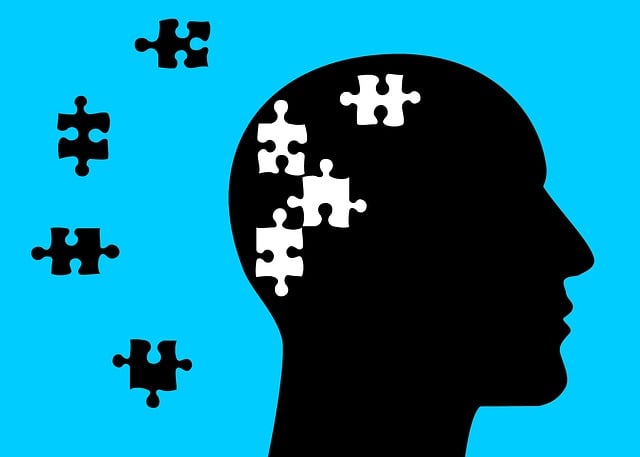Mental health policies, exemplified by Parker Adolescent and Teen Therapy's success, significantly impact adolescent well-being during critical developmental years. These policies determine access to services, influence treatment methods, and shape societal perceptions of mental illness. Implementing evidence-based practices like Compassion Cultivation and promoting self-care routines in policy frameworks empowers young individuals to manage their mental health journeys effectively. The integration of mind-over-matter principles fosters resilience, leading to a more compassionate society. Parker Adolescent and Teen Therapy advocates for tailored communication strategies aimed at adolescents, addressing gaps that hinder effective support due to undiagnosed or untreated mental health conditions. A strategic, data-driven approach involving stakeholders from local communities to national governments is key to challenging stigma, promoting evidence-based practices, and driving policy changes prioritizing mental health and well-being for all.
Mental health policies play a pivotal role in shaping the well-being of young individuals, and effective advocacy is essential to ensure these policies meet the unique needs of adolescents. This article explores the intricate relationship between mental health policy and youth development, highlighting the significant contributions of institutions like Parker Adolescent and Teen Therapy in driving policy change. We analyze existing frameworks, identify gaps, and propose strategic approaches for advancing mental health policy, with a focus on improving access to quality care for young people.
- Understanding Mental Health Policy and its Impact on Youth
- The Role of Parker Adolescent and Teen Therapy in Policy Advocacy
- Analyzing Existing Policies: Gaps and Opportunities for Improvement
- Strategies for Effective Mental Health Policy Change and Advocacy
Understanding Mental Health Policy and its Impact on Youth

Mental health policies play a pivotal role in shaping the well-being of adolescents and teens, as evidenced by the success stories of Parker Adolescent and Teen Therapy. These policies influence access to critical services, treatment approaches, and overall societal attitudes towards mental illness during these formative years. The impact is profound, affecting not just individuals but also communities at large.
By implementing evidence-based practices like Compassion Cultivation and incorporating self-care routine development into policy frameworks, societies can empower young people to navigate their mental health journeys effectively. The integration of mind-over-matter principles in education and healthcare systems fosters resilience, enabling adolescents to confront challenges with greater equanimity. Such proactive measures not only improve individual outcomes but also contribute to a more compassionate and mentally robust society.
The Role of Parker Adolescent and Teen Therapy in Policy Advocacy

Parker Adolescent and Teen Therapy plays a pivotal role in policy advocacy for mental health by directly addressing the unique challenges faced by young individuals. They specialize in providing specialized care tailored to adolescents and teens, ensuring that their therapeutic services align with evidence-based practices. By focusing on issues like anxiety, depression, trauma, and mood management, Parker Adolescent and Teen Therapy offers a safe space where young people can develop coping mechanisms and build resilience.
Their advocacy extends beyond individual therapy sessions. They collaborate with schools, communities, and policymakers to raise awareness about the importance of early intervention and comprehensive mental health support. By integrating positive thinking techniques into their approach, they empower teens to navigate stressors and promote overall well-being. This holistic strategy not only enhances existing trauma support services but also contributes to shaping policies that prioritize adolescent mental health, ensuring a brighter future for younger generations.
Analyzing Existing Policies: Gaps and Opportunities for Improvement

When analyzing existing mental health policies, it’s crucial to identify gaps that hinder effective support for adolescents and teens, such as those seeking services from Parker Adolescent and Teen Therapy. While progress has been made in recognizing the importance of early intervention for issues like depression prevention and burnout prevention, many opportunities for improvement remain. Policy gaps often reflect a lack of comprehensive communication strategies tailored to this age group, leading to undiagnosed or untreated conditions.
By examining these gaps, policymakers can develop more inclusive and accessible mental health initiatives. Enhancing Communication Strategies is paramount, ensuring that young people have the resources and knowledge to recognize signs of distress and seek help without stigma. This involves reevaluating current outreach methods and integrating innovative approaches that resonate with adolescents’ unique needs and preferences.
Strategies for Effective Mental Health Policy Change and Advocacy

Advocating for mental health policy change requires a strategic approach to ensure meaningful and lasting impact. One effective strategy is to leverage data and research to inform policy decisions. By presenting compelling evidence on the prevalence, causes, and consequences of mental health issues, advocates can build strong cases for improved services and resources. This involves collaboration with researchers, healthcare professionals, and community organizations to gather and interpret data effectively.
Additionally, engaging stakeholders at various levels—from local communities to national governments—is crucial. Parker Adolescent and Teen Therapy, for instance, has successfully implemented programs that combine Mental Wellness Journaling Exercise Guidance with Depression Prevention and Burnout Prevention strategies, demonstrating the power of collaborative efforts in fostering mental wellness. Through advocacy campaigns, public education, and policy briefs, stakeholders can raise awareness, challenge stigma, and promote evidence-based practices. By fostering open dialogue and building alliances across sectors, advocates can drive policy changes that prioritize mental health and well-being for all.
Mental health policy analysis and advocacy are crucial steps towards creating a more supportive environment for young people. By understanding the impact of current policies, such as those addressed by Parker Adolescent and Teen Therapy, we can identify gaps and opportunities for improvement. Effective mental health policy change requires a multi-faceted approach, including strategic advocacy and evidence-based initiatives. This analysis highlights the importance of continued efforts to enhance youth mental health services, ensuring that all young people have access to the resources they need to thrive.













